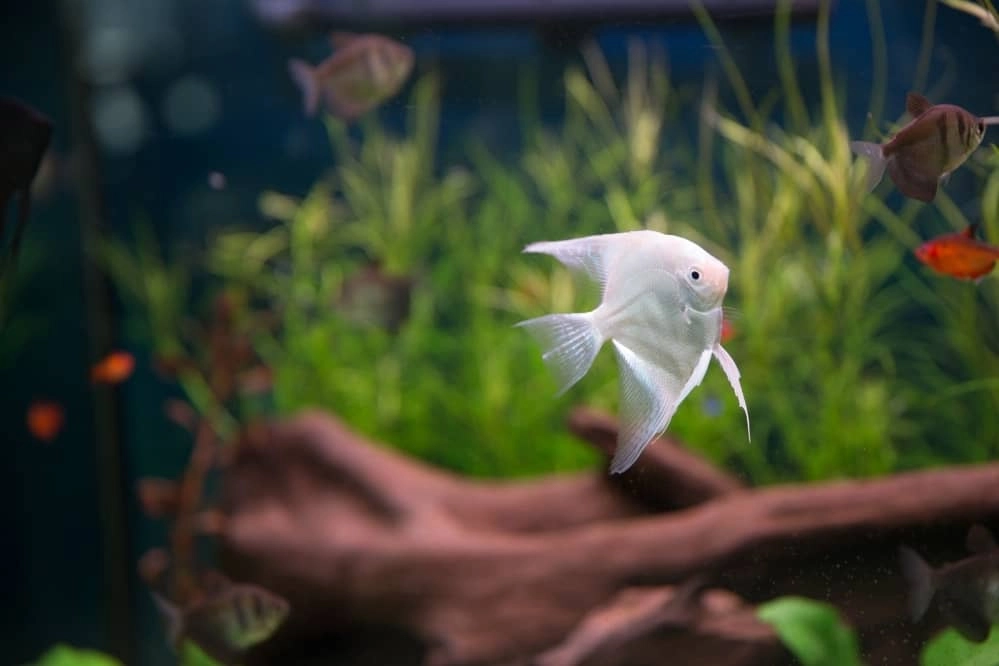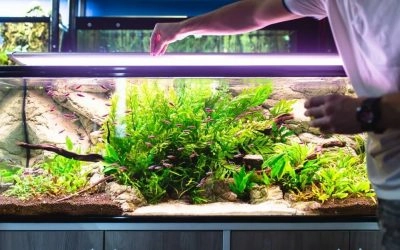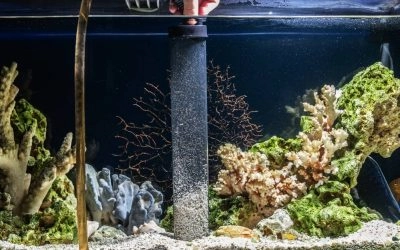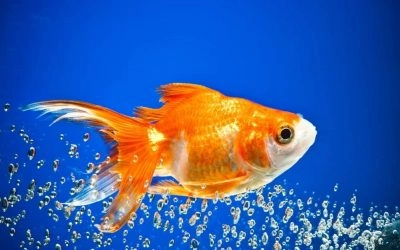Do Fish Get Tired of Swimming?

Do fish get tired of swimming? This is a question that at first glance might seem like it has an obvious answer. However, when you really think about it, there is no obvious answer. So, now that your curiosity is piqued, let us find out the scientific answer to this question.
Why swimming isn’t equivalent to walking or running?
When pondering about this question, it is quite natural to analogize swimming in fish with walking or running in mammals like us. However, there are a few key differences. We are subjected to gravity and all our weight acts on our legs with no upward force to counteract that under normal conditions. However, fish have the advantage of floating on water. They have the advantage of buoyancy.
So, as long as they stay in place without moving, their anatomy, which we will discuss in detail shortly, will effectively make the fish float without having to expend any effort. A minimal effort is still needed in keeping the fish upright but it is still a lot less than the effort we require to even stand in place. This is precisely why most fish always stay suspended in the water column and do not have to rest upon the substrate or anything akin to a chair or a bed for us.
A little something about fish anatomy
While most land animals use their limbs to move around, fish swim with the help of fins. Understanding the anatomical differences between the two is key to being able to figure out if fish get tired of swimming. Land animals can only move their limbs a finite number of times before needing rest. This is because mammalian limbs make up a substantial portion of the mammal’s weight thanks to all the muscles and bones that constitute limbs. Fins on the other hand are quite delicate and nowhere near as hefty. This means that they can be moved with relative ease.
However, even they can tire with time which is why fish have a unique adaptation in the form of a swim bladder. In very simple terms, this is a gas-filled chamber and the fish can regulate the amount of gas in it. This allows it to regulate its buoyancy which in turn allows it to stay suspended at a particular height. All the fins have to do is to keep them oriented the right way up and that requires so little effort that a healthy fish can keep doing it perpetually. Some fishes like sharks do not have a swim bladder which is why their skeleton is made up of cartilage which is a lot lighter than bone. They also have other adaptations which make them very energy efficient.
Fish metabolism
The basics of metabolism in fish are very much like ours. Under normal conditions when there is enough oxygen, energy is produced efficiently and the waste that is produced is easy to get rid of. When the energy demand exceeds the rate of oxygen intake a process called glycolysis takes place. This is a very inefficient way of producing energy and it leads to lactate buildup in the body. This is why we get fatigued and start getting the burning sensation in our muscles under physical exertion. While fish can experience this as well, under normal conditions fish use this type of energy generation very rarely.
Why do fish get tired?
All this might suggest that fish do not tire as easily as we do but they do get tired. Anyone who has gone fishing can attest to that. A healthy fish can struggle for hours at the end of the line before it can be reeled in. This means that they do get tired. This only happens when the fish is under heavy stress such as when it is trying to escape from danger or when it is actively hunting.
When the fish is going about its activities in a normal manner, it can dart around quickly and then rest in place using its swim bladder to recover. It is when fish have to do something rapidly that they start using their big muscles around the belly and the tail. So, an active predator on the hunt or a fish that is spooked and on the run will employ the larger muscles and that is when they get tired under healthy conditions.
Things can take a drastic change when the conditions aren’t healthy. Fish have to breathe and excrete in water and this can become difficult when the water parameters aren’t ideal. Water low in oxygen or high in toxic chemicals like ammonia, nitrites, and nitrates can make a fish tire very easily and quickly.
Do fish always have to be moving?
Fish do not rest as we do. They don’t close their eyes nor do they sit or lie down. At least most of them don’t and the ones that do so don’t do it because they are tired. Most fish can stay suspended in place when they sleep and all they have to do is move their fins about in a minimal manner to orient themselves. This as we have seen does not use up a lot of energy and healthy fish do not get tired because of this.
Fish without swim bladders do have to keep moving but they have adaptations that allow them to glide around using very little energy. In essence, most healthy fish will always show some movement.
What to do when fish stop swimming?
If you ever find a fish just lying on the substrate without moving then this usually means that it is in trouble. Usually, this happens when the swim bladder cannot function properly. This leads to the fish being unable to swim as it should. So, if your fish isn’t moving then make sure that they haven’t suffered any injuries that might have punctured their swim bladder. If this is the case then seek the help of a vet.
If there are no visible injuries then overfeeding and bloating can be a cause. Try changing the feeding schedule and the fish food to see if that alleviates the problem. Finally, fish that have lost their fins can also stop moving. This can be infection-related or it can be the handiwork of another fish that likes nipping on fish fins. The good news is that fish can regenerate their fins as long as the issue is caught early on and the cause is remedied promptly.
To sum things up, if you see your fish is still but is oriented the right way up and starts swimming when you gently tap the aquarium or create a disturbance then you have nothing to fear. However, if they are not swimming at all and are resting on the bottom and it is not one of those species that do this naturally like catfish then check the water parameters to make sure nothing is out of order. Simply put, in most cases when a fish stops swimming, it is not a good thing.




0 Comments